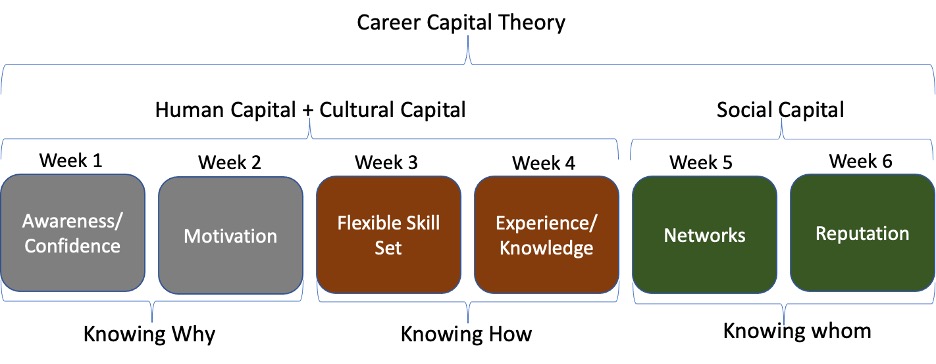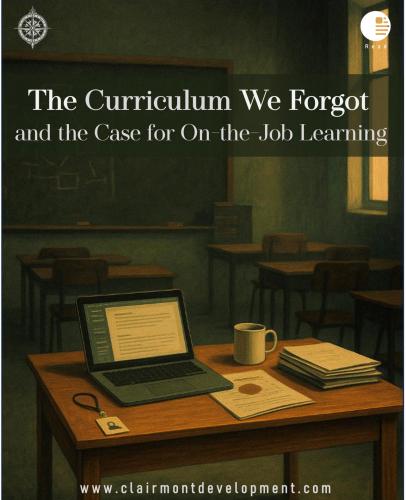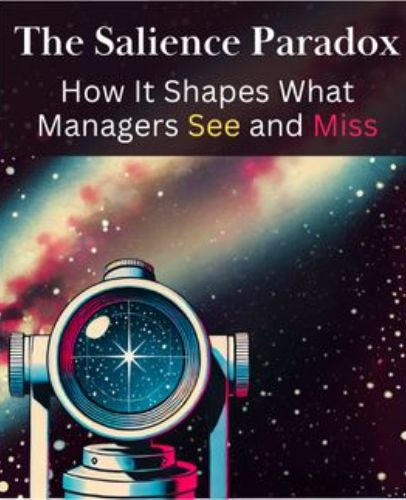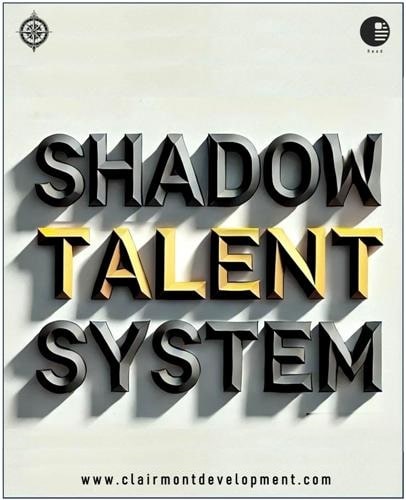How can organizations maximize the potential of their top talents? Career Capital Theory
If you read many of the business biography’s, they often tell their story with a series of events they find insightful and useful for the reader. They are often pivotal moments that changed or propelled their individual career arch. What we don’t see all that often, is the day-to-day experiences that led up to those moments. It is during those times where the underlying skill development takes place that allow them to take advantage of the situations that are key in their career story. The accumulation of these skills is often referred to as building career capital.
This is the concept which describes the list of skills and resources that one develops over the course of their career that they can then “leverage” to take advantage of or “trade” for specific job attributes.
To make the most of this concept, it requires thoughtful and intentional decisions as one navigates one’s career. Research has shown that underlying aspects of career capital can be categorized into three distinct areas. At Clairmont, we have developed a six-week group coaching program that addresses how to build career capital.
The theory has origins that trace back to work that Robert Defilippi and Michael Arthur did when looking at what set of competencies should be combined to have a “boundaryless career”. In the context of their research, they define a boundaryless career may involve sequences of job opportunities that may go beyond a single employer. One of the consequences of that is the idea of decoupling the employee’s identity with a particular employer. As the world that we live in has continued to change and the organizations that we work are continuing to evolve (or at least we hope they do), the principles can be adopted for career growth within a single employer.
Career Capital leads to a Protean Career: Adaptable and Flexible

Protean careers are those that emphasize intrinsic values and self-direction in the quest of psychological success. This is named after the Greek god Proteus, who was known for having a varied nature or ability to assume different forms.
This is an agentic professional perspective, where the individual strives to be self-directed in their work choices and motivated by intrinsic values.
Protean careers are in contrast to traditional career paths, which tend to be more linear and predictable. In a traditional career, individuals typically advance through a series of predetermined steps, with promotions and job changes occurring at predetermined intervals.
In a protean career, on the other hand, individuals are more likely to take a proactive approach to their career development. They may seek out new experiences and challenges, even if they are outside of their current job or industry, in order to expand their skills and knowledge. This can involve taking on new roles or responsibilities, engaging in professional development activities, or even pursuing a completely new career path.
Protean careers can be particularly well-suited to individuals who are looking for more flexibility and control over their career path. They can also be beneficial for organizations, as they can foster a culture of continuous learning and development, which can help to keep employees engaged and motivated.
Knowing why: Finding and Aligning Values
Now let’s have a quick glance at the underlying component that make up the Career Capital Theory. The first category is Knowing Why. This set of competencies refers to an individual’s career motivation. This is an introspective process of identifying one’s beliefs, values, and identities that may involve non-work aspects.
I have had the pleasure of working with high-performing individuals throughout my career. One of the distinguishing factors of high performers is that they are able to link their roles to a larger purpose and something they value.
How do individuals find intrinsic value in the works place? It is an important question when considering how to craft your career. Each individual needs to understand what drives them to perform their best. By doing so, they can find and align their motivations to the roles in which they find themselves. This leads to a very important behavior displayed by successful individuals.
Discretionary effort, the magic ingredient!
One of the differences between an employee and a high-potential employee is their willingness to expend discretionary effort. Discretionary effort refers to a level of effort an employee is capable of giving, but one that exceeds the bare minimum that’s required of them. This asset, if used to benefit their organization, has a compounding effect over the course of their career. Employees are more likely to spend discretionary effort if they can align their values with their current role and organization.
An important factor is employees’ level of autonomy and control over their work. When employees are free to make decisions and take ownership of their work, they are more likely to be engaged and motivated to put in the extra effort.
The discretionary effort can be a powerful driver of success for individuals and organizations. By creating a supportive and empowering work environment, organizations can encourage employees to go above and beyond in their work and positively impact the organization’s success.
The second category is Knowing How. This is where we look at career skills and job-related knowledge. It is important to expand the traditional KSA (Knowledge, Skills, and Abilities) which are often tied to a job performance requirement and starts to include the idiosyncratic elements of an individual that may be outside of a specific role.
The final category is Knowing Whom. This is concerning how an individual builds a network both in a specific organization and outside. The former acts as a resource to draw from and the later is meant to expand learnings and build a reputation outside of an employee’s current organization.
This framework is helpful to keep a holistic view of a career. What is important is to be aware of it and work hard in building your specific portfolio of skills.
Learn more about benefits and program details in Building Career Capital page.







This article is absolutely amazing! It’s hands down the best explanation I’ve ever come across about the meaning of career capital. Thank you so much for sharing your insights. I’m absolutely hooked on your posts.
Insightful article highlighting the importance of career capital and its impact on maximizing individual potential and organizational success. I enjoyed it
Thanks for sharing your knowledge. Our company needs to participate in the career capital workshop. We are planning to book soon.